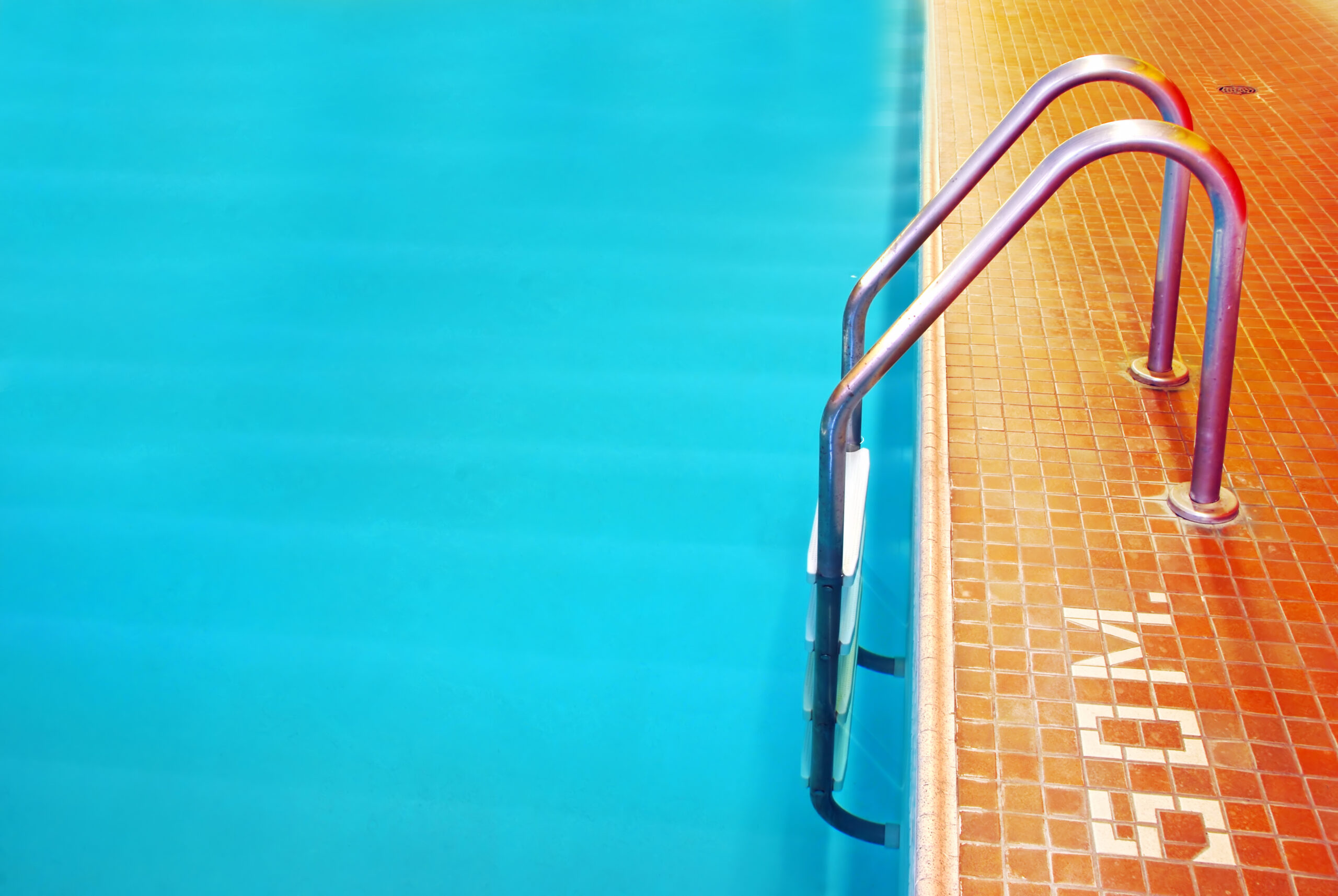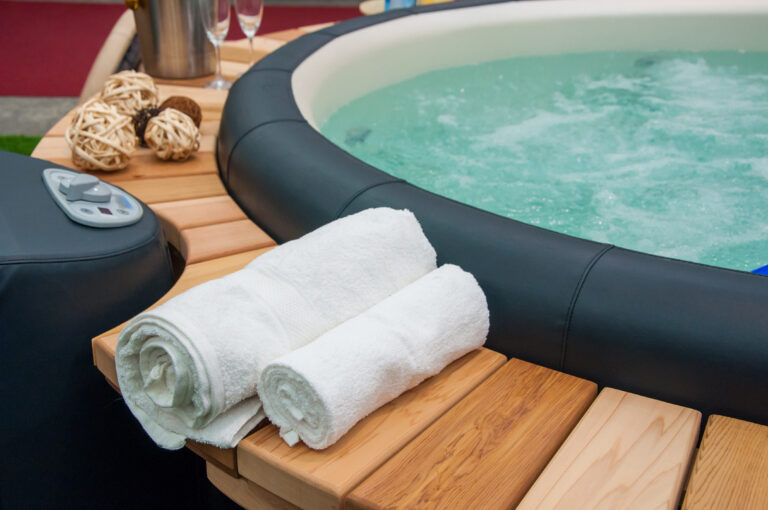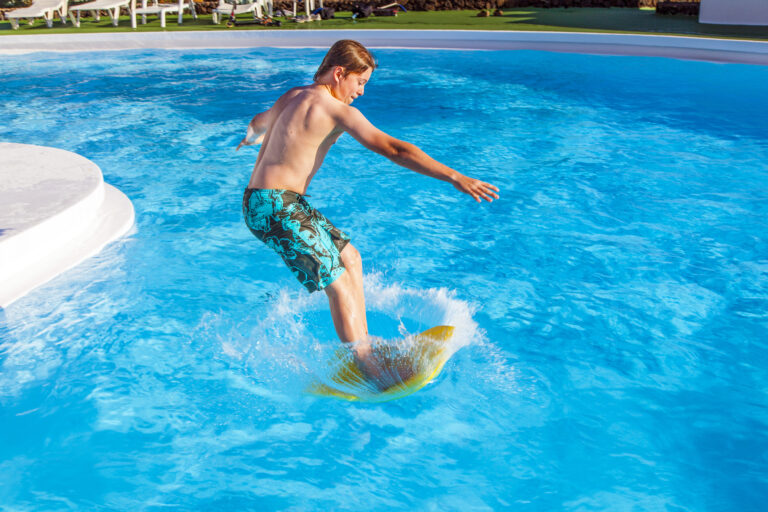Considering Depth How Deep Should Your Pool Be
You’re dreaming of summer days by the pool, aren’t you? But have you considered how deep your pool should be? It’s not a one-size-fits-all answer.
Your choice impacts safety, maintenance costs, and personal comfort. We’re here to guide you through these considerations so you can make an informed decision.
Dive into our article and let’s explore how deep your pool should ideally be.
Understanding Pool Depths: The Basics
You’ve got to understand the basics of pool depths before you can decide how deep your pool should be. It’s not just about diving in or doing laps; it’s also about understanding depth aesthetics and regulations.
Depth aesthetics refer to how the depth of a pool influences its appearance and use. You want your pool’s depth to be practical, but also visually pleasing. A shallow end is great for kids and lounging, while a deeper end allows for more serious swimming or even diving.
But beyond aesthetics, you must also consider depth regulations. Legal requirements vary by area, but generally necessitate a minimum and maximum depth for safety reasons. These regulations are in place to prevent accidents like drowning or injuries from diving into too shallow water.
So when determining your pool’s depth, don’t just think about what you’d personally prefer. Consider who will be using the pool and what they’ll be using it for: relaxation? Exercise? Playtime with the kids? Also remember to check local regulations – they’re not just red tape but important safety measures.
In essence, deciding on a pool’s depth is a balance between personal preference, aesthetic appeal, practical usage needs, and legal parameters.
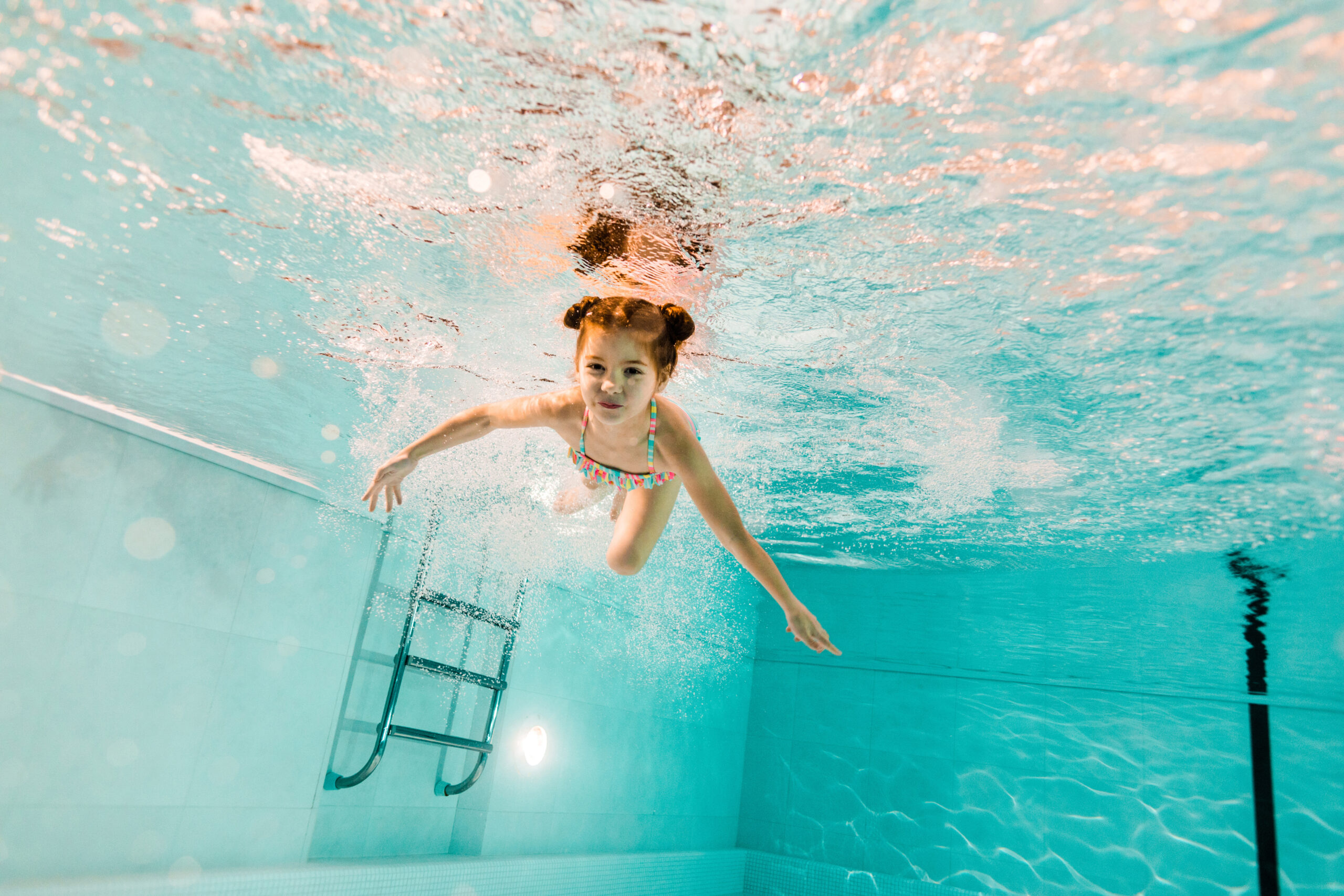
Assessing Personal Needs: Factors Influencing Pool Depth
In evaluating what’s best for you, it’s crucial to think about various factors that can influence the choice of how far down your swimming area goes. Your pool depth isn’t just about personal preference; it’s also shaped by practical considerations such as safety and functionality.
Consider these key factors:
– Diving Needs: If you’re a fan of diving, you’ll need a deeper pool. The minimum recommended depth is 8 feet but do check with local regulations.
– Safety: Diving into shallow water can result in serious injury.
– Enjoyment: Deeper pools allow more freedom to dive and swim underwater without worrying about hitting the bottom.
– Swimming Abilities: Depth should match swimmers’ abilities.
– Beginners: For those learning or not confident in their swimming skills, shallower areas are essential for safety.
– Experienced Swimmers: Those who are comfortable with deep water may prefer greater depths for laps or underwater exercises.
Safety Considerations in Pool Depth Design
Safety’s always paramount when it comes to designing the ideal swimming area. You’ve got to comply with depth regulations, ensuring that your pool isn’t too shallow or too deep. It’s crucial that you adhere strictly to these rules because they’re not just arbitrary guidelines; they’re created for everyone’s safety.
In conjunction with Depth Regulations Compliance, a Child Friendly Design is another essential factor. You’ve got kids? Then you should tailor your pool design keeping them in mind. A child-friendly design doesn’t only mean having fun floaties or inflatable slides; it also involves considering the appropriate depth for children.
Here’s a simple table that summarizes these points:
| Regulated Depth | Child-Friendly Depth | Safety |
| Not too shallow | Suitable for kids | High |
| Not too deep | Prevents accidents | High |
Impact of Pool Depth on Maintenance and Costs
It’s important to remember that the shallower or deeper a swimming area, the more it’ll affect upkeep and expenses. Depth related expenses can skyrocket with an increase in pool depth. Equipment costs, regular maintenance fees, and water treatment products all surge upward as the volume of your pool grows.
Now let’s talk about depth efficiency. This term refers to how effectively you’re using the space in your pool based on its depth. You may think that a deep pool gives you more room for fun activities like diving, but is it worth it? A deeper pool requires more chemicals for cleaning and more energy for heating. It also takes longer to fill up and empty out when necessary.
So what’s your best bet? Maintaining balance! Avoid going too shallow or too deep – aim for a moderate depth that suits your needs without breaking the bank. Consider consultation with professionals who can guide you on achieving maximum depth efficiency while minimizing depth-related expenses.
Case Studies: How Different Pool Depths Work in Real Scenarios
You’re probably curious about how different swimming areas function in real-world scenarios, aren’t you? Let’s dive into some examples to understand this better.
1. Lap Pools: These pools typically have a uniform depth which aids in consistent swimming rhythm and maintains pool acoustics, making it easier for swimmers to hear instructions or signals.
2. Family Pools: Varying depths are common here. The shallow end is safe for kids while the deeper end satisfies adults’ desire for a plunge. Depth perception plays an important role as it helps swimmers judge their position underwater.
3. Diving Pools: Diving requires substantial depth to ensure safety. Here, pool acoustics play a critical role in communicating with divers submerged deep underwater.
In each scenario, you see that depth isn’t just random; it serves specific purposes and influences user experience significantly from maintenance costs to safety measures and even sound transmission!
So next time when you dip your toes into any pool, remember there’s more beneath the surface than meets the eye! Dive smartly knowing not just how deep you’re going but also why that depth matters!
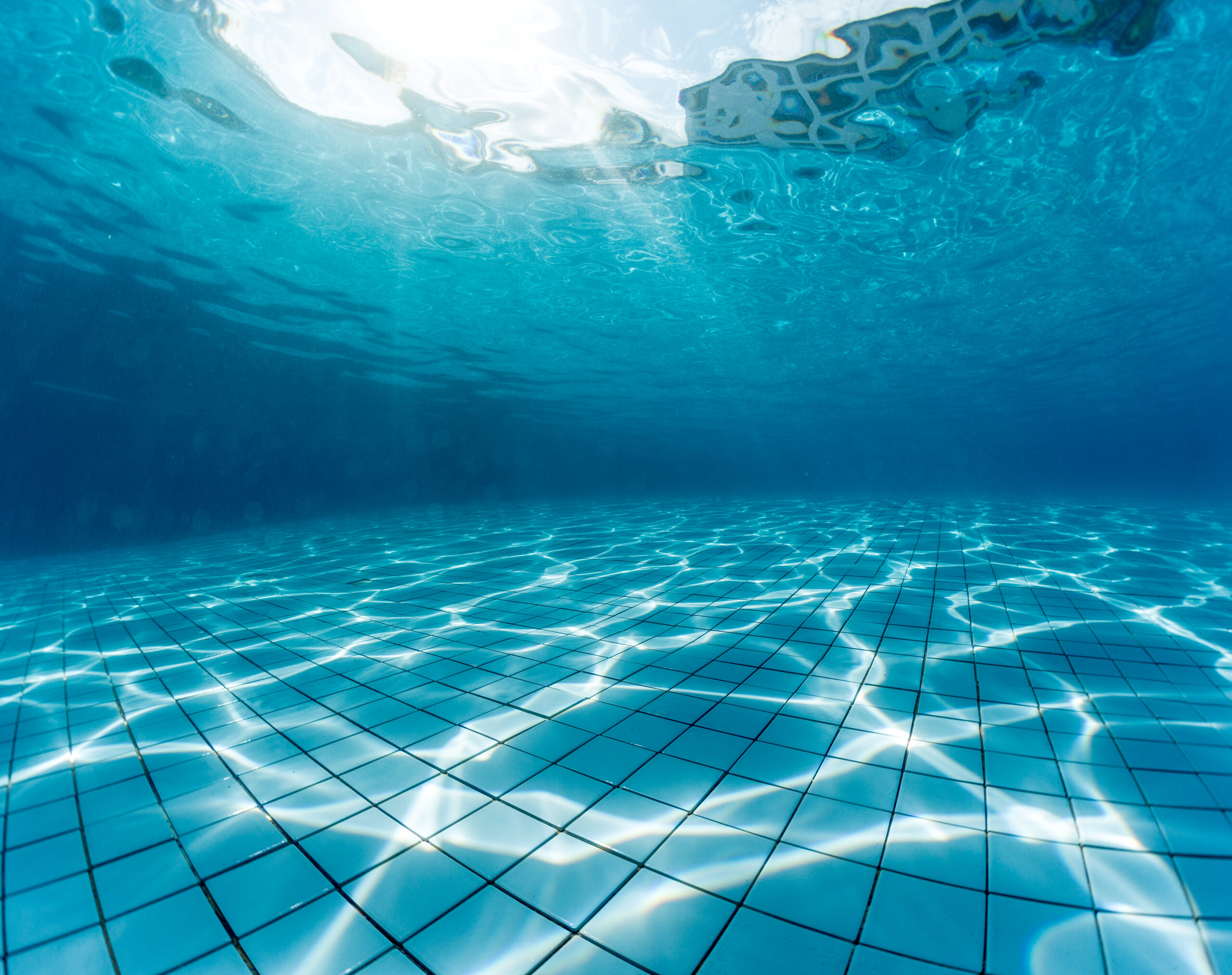
Frequently Asked Questions
What Are the Legal Requirements or Guidelines for Residential Pool Depth?
The legal requirements for residential pool depth vary by location. You’ll need to check local Depth Safety Measures and Pool Depth Regulations. It’s also crucial you take into account users’ safety and swimming skills.
How Does Pool Depth Affect the Type of Pool Material or Lining You Should Choose?
Your pool’s depth influences the material or lining you’ll select. Deeper pools need durable materials to withstand pressure. Research lining varieties, as some may be better suited for deeper depths than others.
Can You Alter the Depth of an Existing Pool and What Is the Process Involved?
Yes, you can alter an existing pool’s depth. It involves draining, demolishing part of the structure, and refilling it. However, consider the significant depth alteration costs and safety considerations involved.
How Does Pool Depth Impact Energy Usage, Particularly Heating Costs?
Deeper pools impact energy usage significantly. They require more energy for heating, increasing costs. Additionally, depth safety and maintenance are crucial factors to consider as they can also affect the pool’s overall energy consumption.
Is There a Standard Depth for Competition or Professional Swimming Pools?
Yes, there’s a standard depth for competition pools. To maintain depth perception and competitive advantage, they’re typically 2 meters deep. This minimizes turbulence, aiding swimmers in maintaining their speed and direction.

